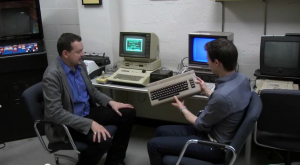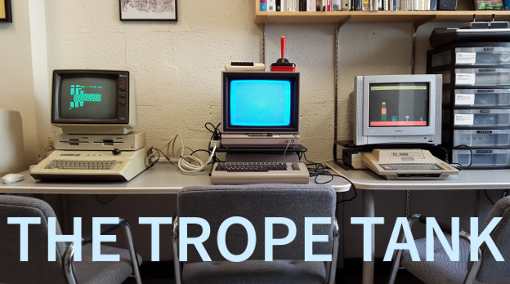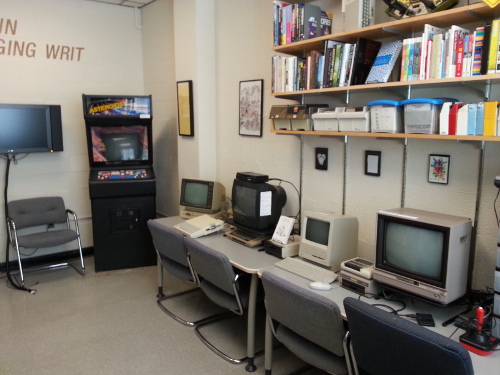“Apple II vs. Commodore 64″ Trope Tank Video
 Erik Stayton’s 12-minute video “Apple II vs. Commodore 64″ is now up on YouTube. It’s shot in the Trope Tank with him in conversation with me there. We discuss several of the things you’d experience in emulation, but also make reference to material specifics of these systems and the two specific computers and controllers that were used.
Erik Stayton’s 12-minute video “Apple II vs. Commodore 64″ is now up on YouTube. It’s shot in the Trope Tank with him in conversation with me there. We discuss several of the things you’d experience in emulation, but also make reference to material specifics of these systems and the two specific computers and controllers that were used.
Erik played three quite different games that we had on hand, on disk, for both systems: Skyfox, World Karate Championship, and Hacker. Besides discussing graphics and sound quality, we also talk about the playability of these games with the controllers we have and issues such as loading times.

![From Restore [Return] Shift](http://nickm.com/post/wp-content/stuff/TT_zine.jpg)


